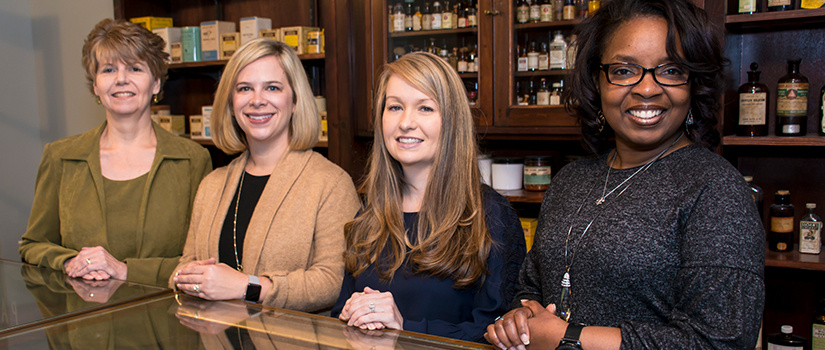Posted on: April 22, 2020
The onset of the COVID-19 pandemic introduced a host of issues impacting our day-to-day lives both at work and at home. That is just as true for our University of South Carolina College of Pharmacy students, especially members of the Class of 2020 who are focused on completing their requirements for graduation. Rising fourth-year pharmacy students who are just beginning their Advanced Practice Pharmacy Experience (APPE) rotations are also faced with the challenge of getting their rotations rescheduled.
During the second week of March 2020, approximately 100 COP students were working at their rotation sites. By the following week, many were no longer allowed to be on site as efforts ramped up to curb the spread of the novel coronavirus.
That is when the COP Experiential Learning team kicked their efforts into high gear to ensure that fourth-year students will graduate and that all other students will be able to meet their requirements for rotations going forward. Jennifer Baker, Pharm.D. and director of Experiential Programs, along with her team members, Whitney Maxwell, Pharm.D., Kathryn Kenard and Nancy Blaisdell, began to focus on how they might work with preceptors and still meet the accreditation requirements set forth by the Accreditation Council for Pharmacy Education (ACPE).
"The ACPE is very clear on expectations when it comes to experiential standards," says Baker. "They have opened up their interpretation to allow us to be creative to allow fourth-year students to complete rotations," adding that a delay in graduating students could have a tremendous impact on the pipeline of new pharmacists entering the workforce.
Once they had confirmed that all fourth-year students would complete their rotations, Baker and her team turned their attention to the 188 students scheduled to begin rotations in May. With the peak of the virus forecast to hit in the next few weeks, most health systems closed rotations in all health fields. “Health systems will likely be overwhelmed,” Baker says, “so we’re in the process of overhauling the majority of student schedules to start at a later date.”
"We aren’t focused just on getting hours in – but to get them into areas that are of interest to them and geared toward their career goals."
Jennifer Baker, Pharm.D. Director of Experiential Programs
While rescheduling is necessary, Baker also wants to ensure the students' rotation choices are still viable. “We aren’t focused just on getting hours in,” she says, “but to get them into areas that are of interest to them and geared toward their career goals.”
Baker is grateful to her staff who have put in long hours to pull off the difficult task of rescheduling so many students. “We are busier than we have ever been,” she acknowledges, “because we have to keep the program going with constant preparation for future rotations and at the same time reacting to the impact of COVID-19.”
Baker also says they would not be as successful in rescheduling students were it not for the faculty and preceptors. “They have been outstanding to work with and we could not do this without them,” she says. Baker noted that one virtual rotation developed by an upstate health care facility was so robust that it will likely continue into the coming academic year.
For preceptors who are interested in providing more availability for students to train or if you would like to learn more about becoming a preceptor, please email: experiential@cop.sc.edu
